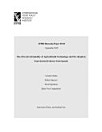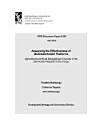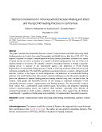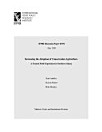Consumer response to food safety risk information
Hoffmann, Vivian · Murphy, Mike · Kariuki, Sarah
IFPRI Discussion Papers Book 2305 · Intl Food Policy Res Inst
Ebook
38
Pages
family_home
Eligible
info
reportRatings and reviews aren’t verified Learn More
About this ebook
Unsafe food imposes significant health and productivity burdens on developing countries. We test the impact of a simple information intervention through which low-income urban consumers in Kenya were provided information about the likelihood that maize flour from the formal and informal sector violated a food safety standard. We find a 42 percent increase in the share of households consuming the similarly priced, lower risk formal sector flour type at follow-up in the treatment group relative to the control group, from a base of 33 percent. The intervention was equally effective for households earning below and above the sample median income level. Our results demonstrate the potential for low-cost interventions to increase the salience of food safety as a product attribute in informal markets or where regulatory enforcement is weak.
Rate this ebook
Tell us what you think.
Reading information
Smartphones and tablets
Install the Google Play Books app for Android and iPad/iPhone. It syncs automatically with your account and allows you to read online or offline wherever you are.
Laptops and computers
You can listen to audiobooks purchased on Google Play using your computer's web browser.
eReaders and other devices
To read on e-ink devices like Kobo eReaders, you'll need to download a file and transfer it to your device. Follow the detailed Help Center instructions to transfer the files to supported eReaders.










